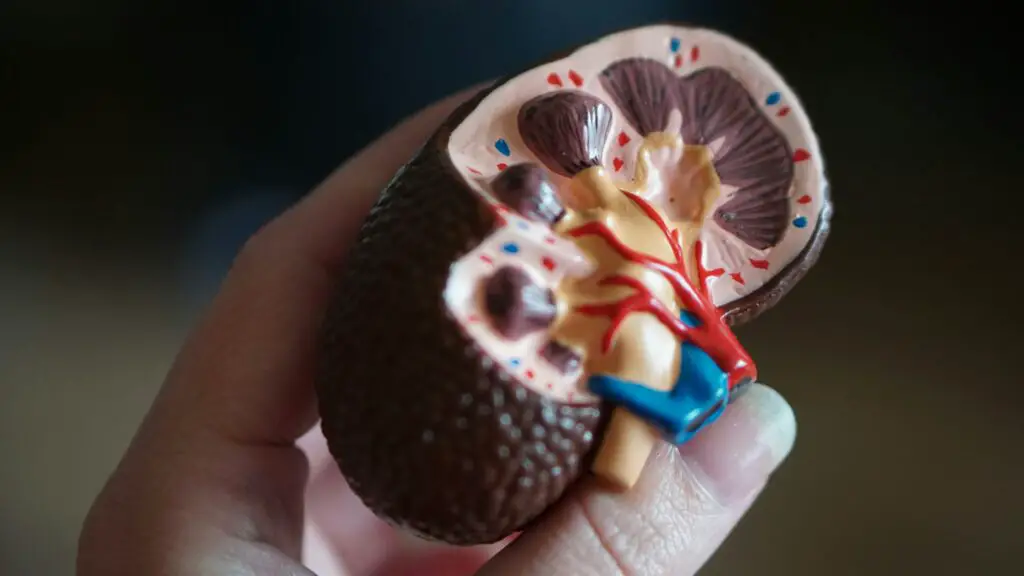Coffee is a beloved beverage enjoyed by millions worldwide, but is it good for your liver and kidneys?
This question has sparked much debate and research.
Some studies suggest that coffee can protect these vital organs, while others highlight potential risks.
In this post, we’ll explore how coffee affects your liver and kidneys.
We’ll break down the latest research, highlight the benefits and risks, and offer practical tips for safe consumption.

The Short Answer
Coffee is not inherently bad for your liver and kidneys.
In fact, moderate coffee consumption can offer protective benefits, such as reducing the risk of chronic liver disease and supporting kidney health.
However, excessive intake may lead to adverse effects, especially in individuals with existing health conditions.
Moderation is key.
How Does Coffee Affect Your Liver?
Positive Effects on the Liver
Coffee can have several positive effects on the liver.
One of the most significant benefits is the reduction in liver inflammation.
This is crucial because inflammation can lead to severe liver problems over time.
Regular coffee consumption is also linked to lower risks of chronic liver diseases.
This includes conditions like cirrhosis and liver fibrosis, which can be life-threatening.
Another advantage is the protection against liver cancer.
Studies have shown that coffee drinkers have a lower risk of developing liver cancer compared to non-drinkers.
Additionally, coffee helps in preventing fatty liver disease.
This condition, often related to obesity and diabetes, can lead to severe liver damage if not managed properly.
Negative Effects on the Liver
Despite the benefits, there are also potential negative effects of coffee on the liver.
These effects are mainly observed in people who metabolize caffeine slowly.
A genetic difference causes some people to process caffeine at a slower rate.
For these slow caffeine metabolizers, coffee can impact liver function negatively.
When caffeine is metabolized slowly, it can accumulate in the liver.
This can lead to increased stress on the liver and potentially worsen existing liver conditions.
Is Coffee Good for Your Liver?

Antioxidant and Anti-inflammatory Benefits
Coffee is packed with antioxidants, which play a vital role in reducing cell damage.
These antioxidants help protect liver cells from damage caused by free radicals.
By neutralizing these harmful compounds, antioxidants in coffee can prevent inflammation and promote overall liver health.
Coffee also positively affects liver enzyme levels.
Regular consumption of coffee has been linked to lower levels of liver enzymes, which are markers of liver damage.
Lower enzyme levels indicate a healthier liver, less prone to damage and inflammation.
Studies and Research Findings
Research supports the benefits of coffee for liver health.
Studies have shown that coffee drinkers have lower rates of nonalcoholic fatty liver disease (NAFLD).
This condition is a major cause of chronic liver problems and can lead to severe complications if not managed.
Coffee consumption is also associated with reduced rates of liver fibrosis and cirrhosis.
These conditions involve the buildup of scar tissue in the liver, which can severely impair its function.
Drinking coffee regularly can help prevent these conditions, keeping the liver healthier for longer.
Additionally, coffee drinkers tend to have lower mortality rates from liver diseases.
This means that people who drink coffee regularly are less likely to die from liver-related illnesses compared to those who don’t.
According to a study published in the journal Hepatology, individuals who drank at least two cups of coffee every day had a mortality risk that was 66% lower than that of non-daily coffee drinkers in relation to liver cirrhosis.
The protective effects of coffee on the liver are well-documented, making it a beneficial addition to your diet for liver health.
How Does Coffee Affect Your Kidneys?

Protective Effects
Coffee can offer protective benefits for your kidneys.
One significant advantage is the reduction in the risk of chronic kidney disease (CKD).
Studies have found that regular coffee consumption is associated with a lower likelihood of developing CKD.
This is great news for coffee lovers who want to keep their kidneys healthy.
Another protective benefit is the reduced risk of kidney injury.
Research shows that drinking coffee can lower the chances of experiencing acute kidney injury (AKI).
According to the study published in Kidney International Reports, higher coffee intake was associated with a lower risk of incident acute kidney injury (AKI).
Specifically, individuals who consumed any amount of coffee had an 11% lower risk of developing AKI compared to individuals who had never consumed coffee.
This condition occurs when the kidneys suddenly fail to filter waste from the blood, leading to serious health issues.
Coffee drinkers have been found to have a lower risk of AKI compared to non-drinkers.
Potential Risks
However, there are potential risks associated with coffee consumption, particularly for those who metabolize caffeine slowly.
Slow caffeine metabolizers may experience a negative impact on kidney function.
This genetic difference can cause caffeine to stay in the body longer, potentially stressing the kidneys.
Additionally, coffee can cause a short-term increase in blood pressure.
While this effect is usually temporary, it can be a concern for individuals with hypertension.
High blood pressure is a risk factor for kidney disease, so it’s important to monitor your coffee intake if you have blood pressure issues.
Is Coffee Good for Your Kidneys?
Studies on Coffee and Kidney Disease
Recent studies provide valuable insights into the effects of coffee on kidney health.
Research has consistently shown that moderate coffee consumption is linked to a lower risk of developing chronic kidney disease (CKD).
This means that drinking coffee in reasonable amounts can actually be beneficial for your kidneys.
The positive effects are largely attributed to caffeine and other bioactive compounds found in coffee.
These compounds help improve kidney function by enhancing blood flow and reducing inflammation.
As a result, they play a crucial role in maintaining overall kidney health and preventing disease.
The Role of Genetics
Genetics also plays a significant role in how coffee affects your kidneys.
The CYP1A2 gene is responsible for how quickly your body metabolizes caffeine.
People with a certain variant of this gene, known as slow metabolizers, process caffeine more slowly.
This can lead to prolonged exposure to caffeine, which may negatively impact kidney function.
For slow caffeine metabolizers, consuming large amounts of coffee can increase the risk of kidney dysfunction.
It’s essential to understand your genetic makeup to determine how much coffee is safe for you.
Fast metabolizers, on the other hand, can process caffeine more efficiently and are less likely to experience negative effects on their kidneys.
Does Drinking Too Much Coffee Cause Kidney Stones?

Drinking too much coffee can potentially contribute to the formation of kidney stones, particularly calcium oxalate stones.
Coffee contains oxalates, which are compounds that can bind with calcium in the urine to form stones.
However, the risk largely depends on your overall hydration levels.
Staying well-hydrated is crucial in preventing kidney stones because it helps dilute the substances in urine that lead to stones.
Therefore, while coffee does contain oxalates, drinking plenty of water throughout the day can mitigate the risk of stone formation.
It’s essential to balance coffee intake with adequate hydration to maintain kidney health and prevent kidney stones.
The Relationship Between Coffee, Hypertension, and Kidney Disease
Coffee’s Effect on Blood Pressure
Coffee has a noticeable effect on blood pressure.
When you drink coffee, it can cause a short-term spike in blood pressure.
This is because caffeine stimulates the nervous system, leading to an increase in heart rate and constriction of blood vessels.
For most people, this rise is temporary and does not cause long-term issues.
However, if you have hypertension, these short-term increases can be a concern.
Regular monitoring and moderation in coffee consumption are crucial for individuals with high blood pressure to avoid exacerbating their condition.
Decaf and Hypertension
For those with hypertension, decaf coffee can be a beneficial alternative.
Decaf coffee provides the taste and experience of regular coffee but with significantly less caffeine.
This reduction in caffeine means a lower likelihood of causing spikes in blood pressure.
Consequently, decaf coffee can be a safer option for people with blood pressure issues, allowing them to enjoy coffee without the associated risks of caffeine-induced hypertension.
What is an OK Amount of Coffee to Consume?

General Guidelines for Coffee Consumption
The FDA recommends that adults consume no more than 400 milligrams of caffeine per day.
This is roughly equivalent to four 8-ounce cups of brewed coffee.
For people without kidney disease, this amount is generally considered safe.
However, for those with kidney disease, it’s important to consult with a healthcare provider to determine a safe amount of coffee.
Individual tolerance can vary, and those with kidney issues may need to limit their intake to avoid exacerbating their condition.
Signs of Excessive Caffeine Consumption
Excessive caffeine consumption can lead to several health issues.
Common symptoms include jitteriness, anxiety, insomnia, and a rapid heart rate.
If you experience any of these symptoms, it might be a sign that you’re consuming too much caffeine.
In the long term, excessive caffeine can contribute to high blood pressure, digestive issues, and even kidney problems.
Monitoring your caffeine intake and being aware of these signs can help you enjoy coffee safely and healthily.
5 Tips for Enjoying Coffee with Kidney Disease

1. Consume Coffee in Moderation
Moderation is key when enjoying coffee with kidney disease.
Drinking coffee in reasonable amounts allows you to savor its flavor without overloading your kidneys.
Experts often recommend limiting caffeine intake to reduce the risk of complications.
2. Factor Coffee into Your Fluid Allowance
For those with kidney disease, managing fluid intake is essential.
Coffee counts towards your daily fluid allowance.
Be mindful of this when planning your daily beverages to ensure you stay within your recommended limits and prevent fluid overload.
3. Limit Cream and Sugar in Your Coffee
Adding cream and sugar to your coffee can increase phosphorus and potassium intake, which might be harmful for those with kidney disease.
Opt for low-phosphorus and low-potassium options or use alternatives like almond milk and stevia to keep your coffee kidney-friendly.
4. Consider Alternative Beverages
If you’re looking for variety, consider alternative beverages such as decaf coffee, black tea, or green tea.
These options often contain less caffeine and can provide similar enjoyment without straining your kidneys.
Decaf coffee is particularly beneficial for those sensitive to caffeine.
5. Talk to a Registered Dietitian or Physician
It’s crucial to consult with a registered dietitian or physician about your coffee consumption.
They can provide personalized advice tailored to your health status and ensure your coffee habits align with your overall dietary plan.
Their guidance will help you make informed decisions and maintain kidney health.
Are There Health Benefits to Drinking Coffee?

Overall Health Benefits
One of the most notable benefits is the reduced risk of various diseases.
Research has shown that coffee drinkers have a lower risk of developing heart disease and certain types of cancer.
This is largely due to the antioxidants and other bioactive compounds found in coffee that help protect your cells from damage.
Coffee also helps improve energy levels and metabolism.
The caffeine in coffee acts as a stimulant, boosting your energy and helping you feel more awake and alert.
Additionally, caffeine can increase your metabolic rate, which can aid in weight management and overall physical performance.
Coffee’s Role in Preventing Specific Conditions
Coffee plays a significant role in preventing specific health conditions, particularly related to the liver and kidneys.
Regular coffee consumption has been linked to better liver health, with lower risks of liver diseases such as cirrhosis and liver cancer.
The antioxidants in coffee help reduce liver inflammation and improve liver enzyme levels.
For kidney health, coffee has protective effects that can help prevent chronic kidney disease (CKD) and acute kidney injury (AKI).
Coffee drinkers often have a lower risk of developing these conditions compared to non-drinkers.
Additionally, moderate coffee consumption can help maintain kidney function and reduce the risk of kidney stones when paired with adequate hydration.
Coffee also impacts chronic diseases positively.
Regular coffee intake is associated with a lower risk of type 2 diabetes and Parkinson’s disease.
The compounds in coffee help improve insulin sensitivity and protect brain function, contributing to better long-term health outcomes.
The Bottom Line
Coffee can be both beneficial and risky for your liver and kidneys.
It offers protective effects and health benefits, but excessive consumption can pose risks.
Moderation is key.
To enjoy coffee safely, consume it in moderation and stay within recommended limits.
Monitor your body’s response and consult with a healthcare professional if needed.
Balancing coffee intake with a healthy lifestyle can help you reap its benefits while minimizing potential risks.


